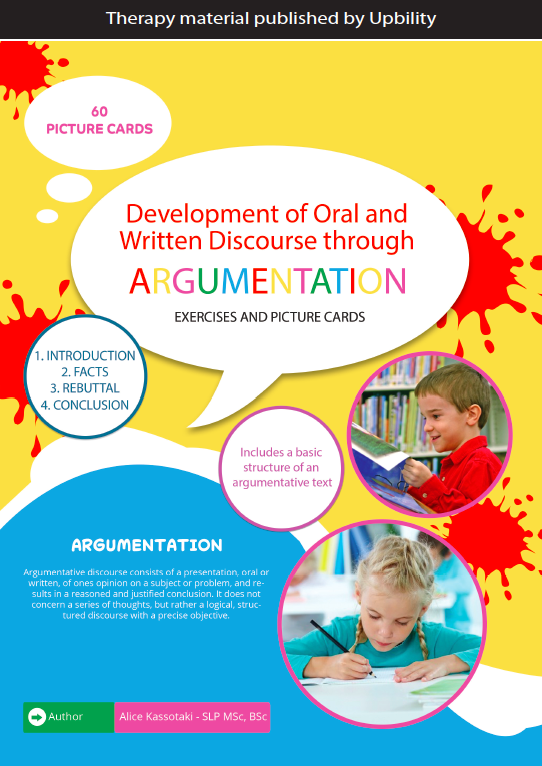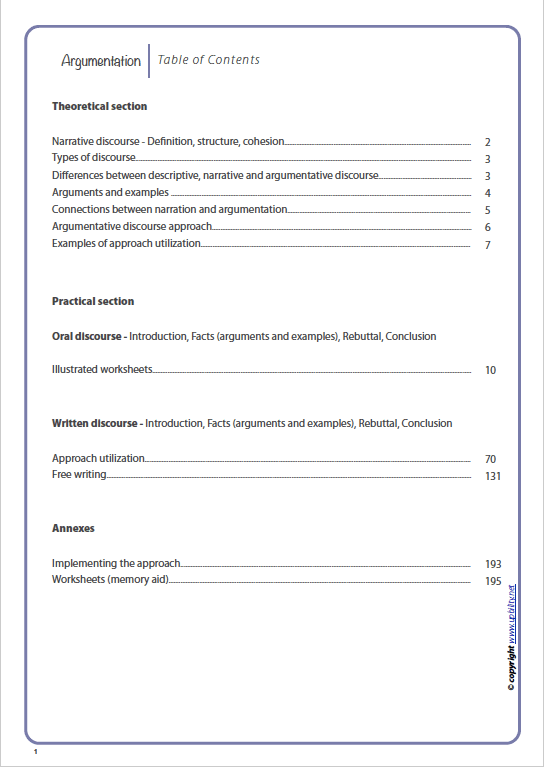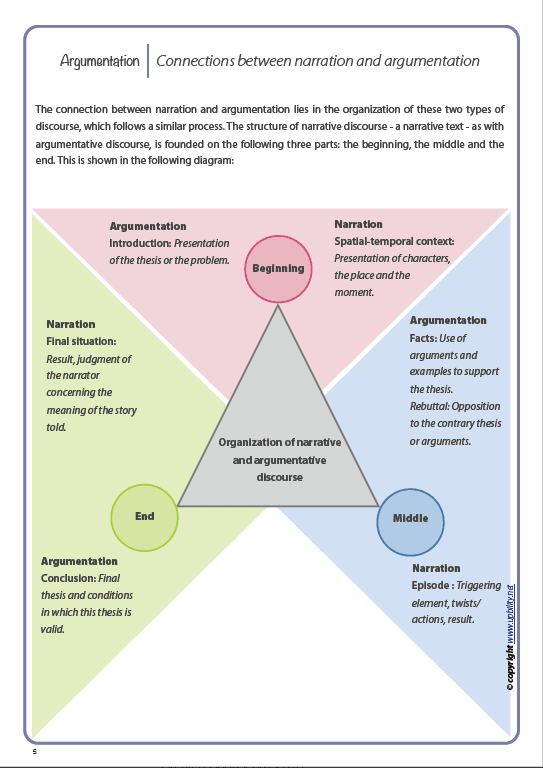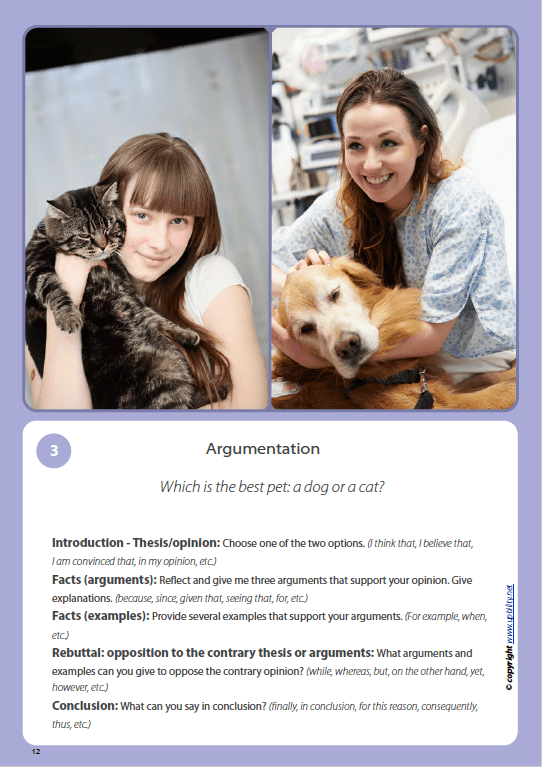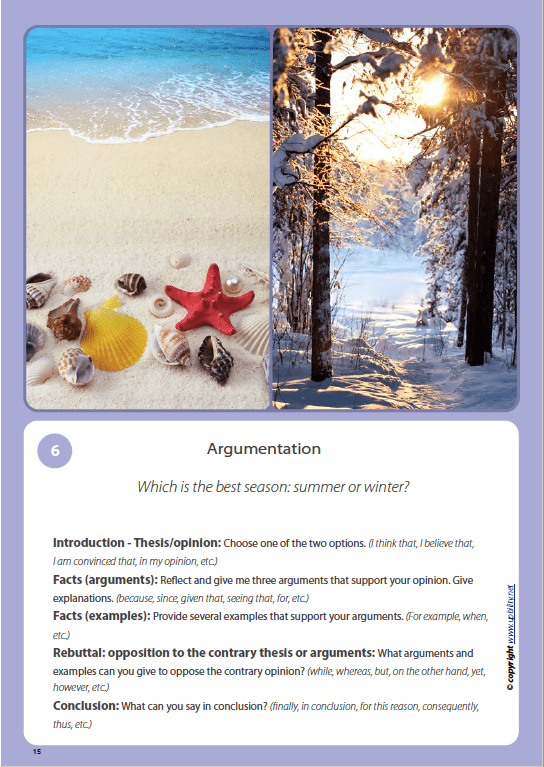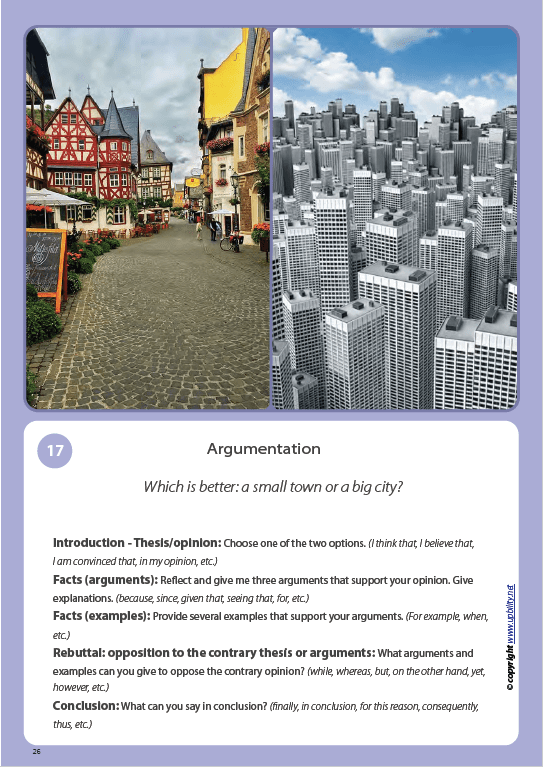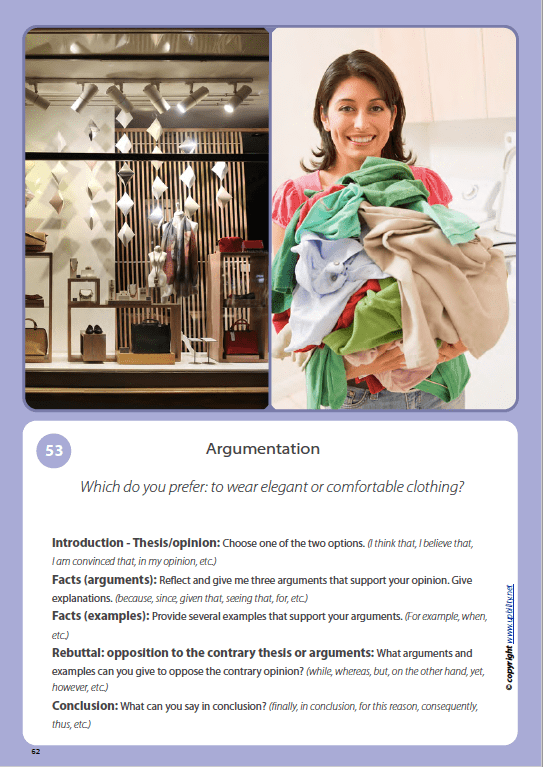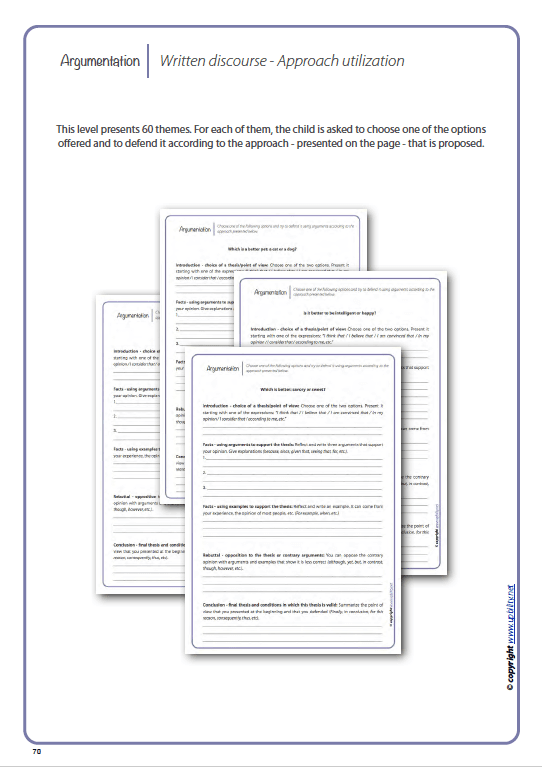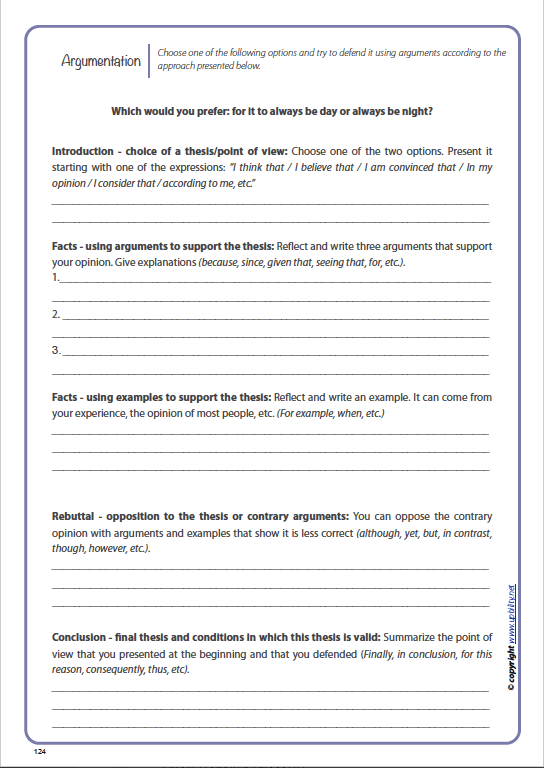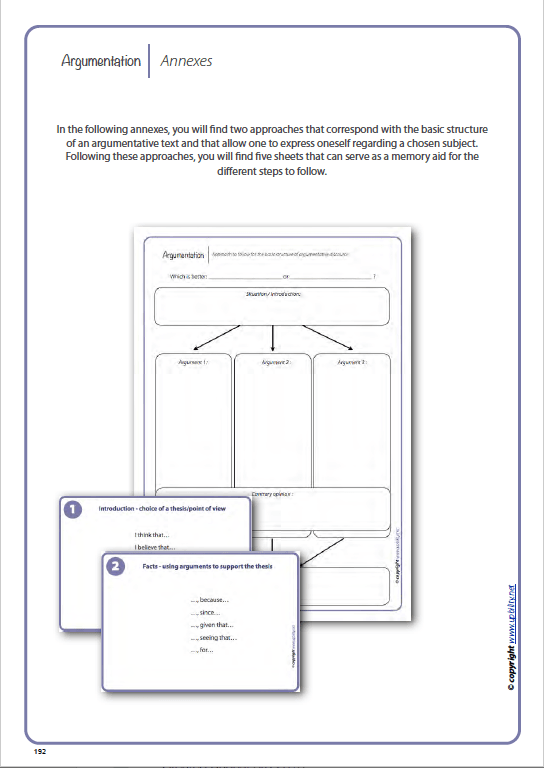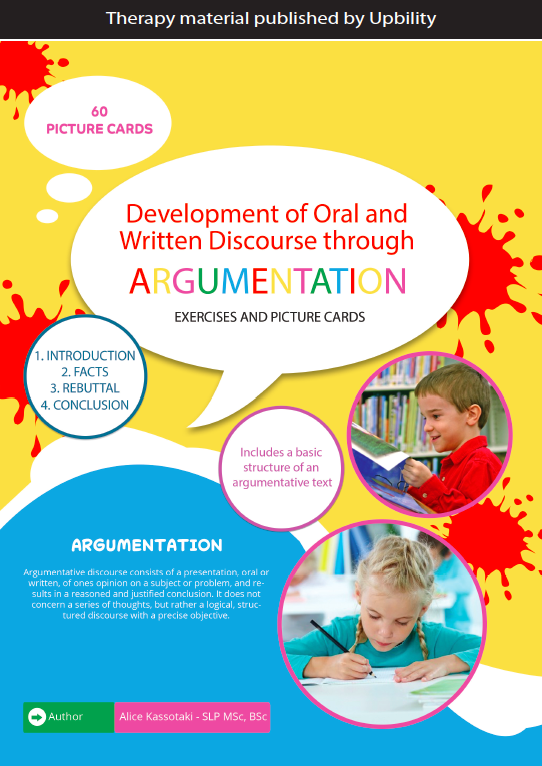Development of Oral and Written Discourse through Argumentation
Available
Development of Oral and Written Discourse through Argumentation - ΕΒΟΟΚ - PDF is backordered and will ship as soon as it is back in stock.
Description
Description
Argumentation
Age Group : 9 years and over
Argumentative discourse consists of a presentation, oral or written, of one's opinion on a subject or problem, and results in a reasoned and justified conclusion. It does not concern a series of thoughts, but rather a logical, structured discourse with a precise objective. In argumentation, the language does not only serve to provide information, but also to influence the audience to change an opinion, emotional attitude, or behavior. This is not, however, unique to argumentative discourse, as one also encounters the intention to convince the audience in description and narration.
Argumentation can be carried out in two manners:
- Using examples. To support a thesis, one uses examples drawn from history, science, personal experiences, public opinion, etc.
- Using arguments. In order to support a point of view, one can also use explanations and reasoning.
Arguments, as with examples, are used as frequently in everyday conversations as in official texts, mainly in the field of science.
The use of arguments and examples allows for:
- One to understand which positions are correct or more significant than others.
- One to convince others of the validity of their own point of view: the goal is to change the opinion of the audience with regards to the subject being discussed.
You may also be interested in the book "POCKET CARDS | Abstract thinking".
Specifications
Specifications
-
Book format
-
SKU
-
Age
-
Number of pages
-
Dimensions
-
Author
-
Pagination
-
Translation & Proofreading
-
Year of publication
Contents
Contents
Author
Author
Age
School-aged children
Author
Alice Kassotaki - Speech Language Pathologist MSc, BSc
Secure Payments
All major methods accepted — fully protected from checkout to delivery.

